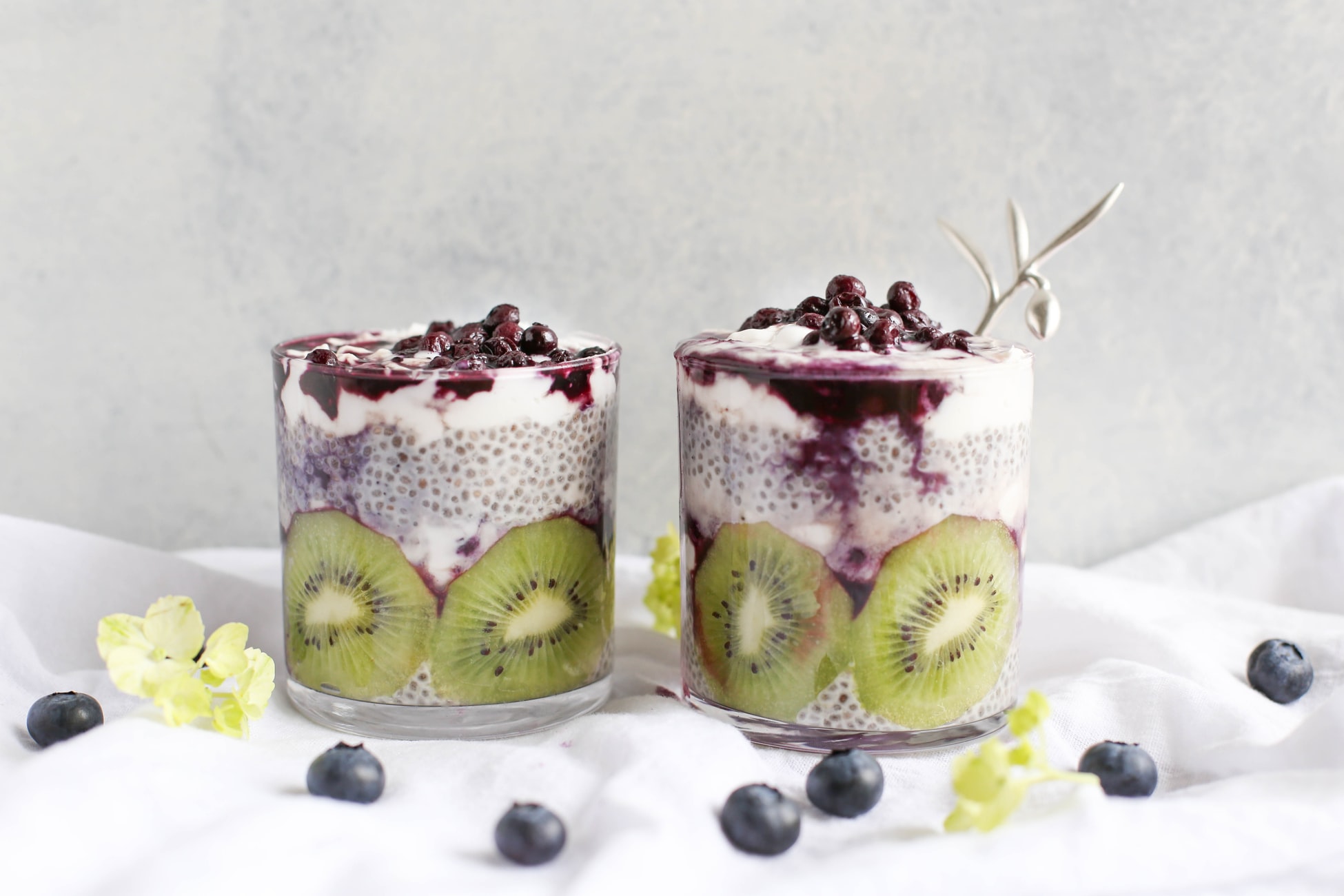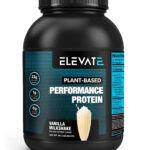10 Powerful Plant-Based Sources of Omega-3
The benefits of omega-3 fatty acids are well-known. These polyunsaturated oils are found in three main types: alpha-linolenic acid (ALA), eicosapentaenoic acid (EPA) and docosahexaenoic acid (DHA). Out of the three, only ALA is found in plant-based sources of omega-3 but our ability to convert ALA is limited. That is why it is essential that vegans consume a good amount of ALA-rich foods so that their bodies can benefit from omega-3.
Take a look at some of the best plant-based sources of Omega-3 and take care to implement them in your diet.

Flax Seeds
1 oz (28 grams) flaxseed contains 6.388 grams of ALA
This amount of omega-3 is more than the limit amount recommended so having a little flax seed every day can be extremely beneficial for your health.
Flax seeds are important nutritional powerhouses of omega-3 as well as protein, magnesium, manganese, and fiber. Research has shown that consumption of flax seeds reduces cholesterol and regulates blood pressure.
With a mild nutty flavor, flax seeds are a great addition to your breakfast cereals, soups, salads, smoothies, and yogurt. They are also a staple ingredient in vegan baking as one tablespoon of flax seeds with 2.5 tablespoons of water can substitute for an egg.
Chia Seeds
1 oz (28 grams) of chia seed contains 4.915 grams of ALA
A single ounce of chia seeds meets over three to four times your daily recommended intake of omega-3. Like flax seeds, chia seeds are also an excellent source of protein and fiber. Studies have also found that the consumption of chia seeds as part of a balanced diet reduces the risk of chronic diseases and also results in decreased blood triglycerides, inflammatory markers, and glucose intolerance.
Chia seeds are also known to increase good HDL cholesterol levels in the blood.
Like flax seeds, chia seeds can also be used as a substitute for eggs in baking. You can also boost your chia seed intake by creating nutritious chia seed puddings, topping your yogurts and smoothies with the seeds, and even adding it to teas and fruit juices.
Pumpkin Seeds
1 oz (28 grams) of pumpkin seeds contain 0.04 grams of ALA
Pumpkin seeds are a great source of increasing your omega-3 intake. They also are chock-full of essential minerals like calcium and magnesium as well as protein and fiber.
Pumpkin seeds contain a healthy combination of omega-3 and omega-6 which have benefits for both the heart and the liver.
Research also suggests that omega-3 in pumpkin seeds can also decrease the risk of thrombosis and arrhythmias (irregular heartbeat) which can lead to stroke and heart attack. It also prevents fatty buildup on the artery walls, decreases bad LDL cholesterol, lowers blood pressure, and improves endothelial functions.
Hemp Seeds
1 oz of hemp seeds contain 6 grams of ALA
Hemp seeds contain 30% of oils, which contains a good amount of omega-3 fatty acids. They are also rich in protein and minerals like iron, zinc, and magnesium.
Research has found that hemp seeds can benefit your cardiovascular health by preventing the formation of blood clots and helping the heart recover from heart attacks.
Hemp seed oil, which is made by pressing hemp seeds, also has a hefty dose of omega-3 fatty acids.
You can create homemade granola bars with hemp seeds and other seeds and nut which can pack a nutritious punch. You can also sprinkle hemp seeds on top of yogurt or stir them in a smoothie for some nice crunch.
Edamame
½ cup of shelled edamame contains 0.3 grams of ALA
Edamame beans are immature soybeans, which are traditionally used in Japanese cuisine. They are not just a wonderful plant-based source of omega-3 but are also rich in protein. Plus, they are also very high in fiber, vitamins, and minerals.
The great thing about edamame is that they do not contain unhealthy saturated fats and can help improve your overall heart health. They also contain isoflavones which can help alleviate symptoms of menopause and reduce the risk of hormone-related cancers in women.
Boiled and steamed edamame are great in salads or side dishes.
Brussels Sprouts
100 grams of Brussels sprouts contain 173 mg of ALA
Brussels sprouts are not just an excellent source of omega-3, it is also rich in vitamin C and vitamin K, which is important for blood clotting and bone health. It also contains a lot of fiber.
Studies have found the cruciferous veggies like Brussels sprouts can lower the risk of cardiovascular disease by 16%.
Brussels sprouts make a delicious accompaniment for any meal, whether they are steamed, roasted, or stir-fried. You can also incorporate them into soups by removing the meat item and adding Brussels sprouts in their place.
Algal Oil
Depending on the brand, algal oil can have as much as 500 mg of omega-3 fatty acids
Algal oil is a type of oil derived from algae and is one of the rare vegan sources of DHA and EPA. Research has found that it is comparable to cooked salmon in terms of nutritional availability of omega-3.
Studies have also found that algal oil is beneficial to your overall health and can also help improve your memory.
For people who follow a plant-based diet, algal oil is one of the very best sources of omega-3 fatty acids. Liquid forms of the oil can be added to salads, drinks, and smoothies for a dose of healthy fat.
Navy Beans
1 cup of cooked navy beans contains 375 mg of ALA
A single cup of navy beans can give you almost an entire day worth of omega-3. Aside from this, these creamy-white beans are packed with protein and are chock full of essential vitamins and trace minerals like manganese, thiamine, folate, phosphorous and non-dairy calcium.
Studies show that navy beans can help fight diabetes and aid in weight loss. You can combine them with whole grains like rice to make a tasteful and nutritious meal.
To get the most health benefits out of your navy beans, wait to cook them until little sprouts start to grow from them. You can then use those beans to add to your soups and salads.
Walnuts
1 oz of walnuts contains 2.54 grams of ALA
Walnuts are oily nuts loaded with healthy fats. In fact, walnuts contain 65% of fat content and research has found that regular consumption of walnut can improve brain health. Other studies have found that eating walnuts have been associated with improvements in memory, learning, anxiety, and motor development in mice with Alzheimer’s disease.
Walnuts are also rich in inflammation-fighting antioxidants, which protect against heart disease and regulate blood pressure during times of stress.
To add walnuts to your diet, toss them into a salad, sprinkle them on top of your yogurt, or add them into granola bars. You can also just eat a handful as a healthy snack in the afternoon.
Pine Nuts
1 oz of pine nuts contains 0.03 grams of ALA
Pine nuts are a good source of omega-3 and omega-6 fatty acids as well as a good source of manganese, copper, magnesium, and some B-complex vitamins. Pine nuts can help lower your cholesterol levels and prevent damage to the arteries. They are also good for your brain and heart.
They are also very good for your eyes and can prevent the risk of eye diseases like age-related macular degeneration that can lead to blindness.
Pine nuts that are already shelled are easier to eat. They also add a nice crunch to salads. Additionally, delicious pesto can be made with pine nuts and they can also be incorporated into whole-grain bread.
Bottom Line
There are many other plant-based foods, which contain omega-3 fatty acids; however, the ones above are particularly good for your health and provide you with a whole host of benefits.
People who cannot meet their daily requirement of omega-3 or those who experience high levels of inflammation can benefit from taking omega-3 supplements. However, getting omega-3 from your diet is more beneficial and much tastier too!







